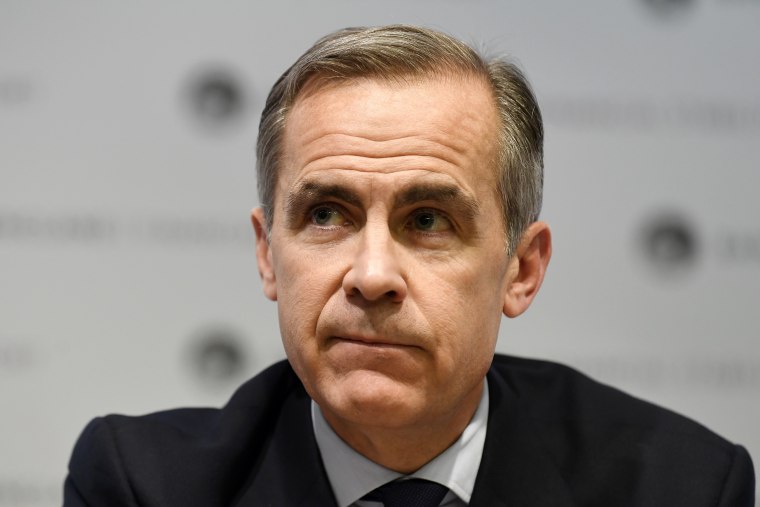LONDON — Britain risks suffering an even bigger hit to its economy than during the global financial crisis 10 years ago if it leaves the European Union in a worst-case Brexit scenario, the Bank of England said on Wednesday.
Hours after the government issued its own stark warning about a "no-deal" Brexit, the Bank of England said the economy could shrink by as much as 8 percent in about a year.
The two reports could add to pressure on lawmakers to drop their opposition to the Brexit agreement that Prime Minister Theresa May struck with other E.U. leaders on Sunday.
However, supporters of a more definitive break with Brussels quickly dismissed the reports as scaremongering, while advocates of closer ties said the forecasts demonstrated that promises of greater prosperity outside the E.U. had been a lie.
The Bank of England said that in the event of a "disorderly" scenario — involving severe delays at U.K. borders and financial markets' loss of confidence in British institutions — there would be a 25 percent tumble in the value of sterling, taking it close to parity against the dollar.
It also predicted a spike in inflation to 6.5 percent from around 2.4 percent now, and a jump in interest rates. House prices would fall by 30 percent.
It said a merely "disruptive" Brexit, with goods flowing across borders but facing tariffs and other barriers, would cause a 3 percent fall in gross domestic product.
"Our job is not to hope for the best but to prepare for the worst," Bank of England Governor Mark Carney told a news conference.
All of the Bank of England's scenarios assumed interest rates will rise. In the worst-case Brexit, rates could rise to 5.5 percent — a level last seen in 2007, before the financial crisis — from the current base rate of 0.75 percent.
Hours earlier, the government acknowledged that any Brexit option would be worse for the economy than staying in the E.U., but said that leaving the bloc without any agreement with Brussels would weigh heavily on growth at least into the 2030s.
The government report said that if there was no deal, national output would be 7.7 percent smaller in just over 15 years' time than if Britain remained in the bloc.


